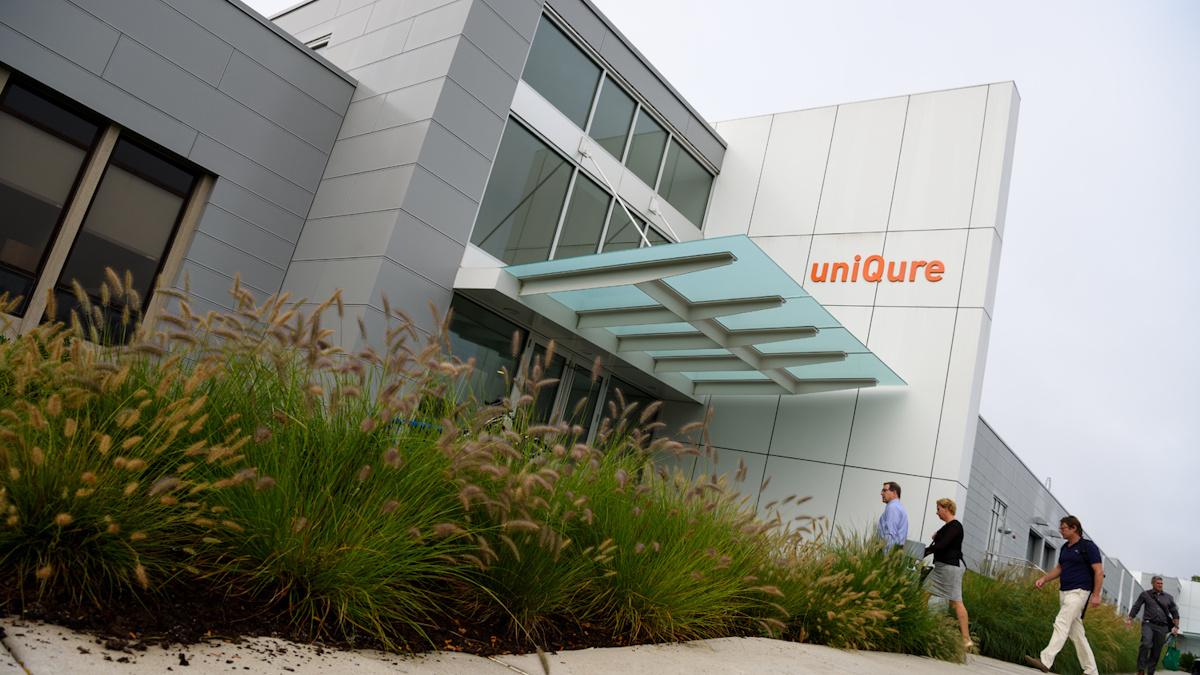PTC's Huntington study was positive. Why did its stock fall?

In a potentially pivotal trial, PTC Therapeutics' experimental therapy for Huntington's disease (HD) met its primary endpoint, but questions about the data have raised doubts about the company's ability to seek accelerated approval.
The phase 2 PIVOT-HD trial of Novartis-partnered PTC518 (votoplam) showed that the oral mRNA splicing modifier was able to achieve a dose-dependent reduction in the levels of mutant Huntingtin (HTT) protein in the blood and cerebrospinal fluid of patients.
There was no clear correlation with clinical outcomes, however, sparking questions about whether PTC would be able to convince the FDA to allow early, accelerated approval based on the biomarker data alone.
The 12-month data comes from a cohort of 159 patients with stage 2 and 3 (intermediate/late intermediate) Huntington's, including a subset of 21 patients who had been taking the drug for at least 24 months.
There was a 23% reduction in HTT at a 5mg dose for both stage 2 and 3 patients, rising to 39% and 36% at a 10mg dose, respectively. For those on the drug for 24 months, there was also a dose-dependent reduction in neurofilament light chain (NfL) protein, another HD biomarker.
When it came to functional outcomes, the results were less consistent. In stage 2 patients, there were dose-dependent trends for improvements on the cUHDRS and TMS scales compared to placebo, but for stage 3 only the 5mg dose showed any improvement.
PTC, which trumpeted the result as a resounding win, said the disparity suggests that the treatment effect with PTC518 may differ in stage 3 versus stage 2 patients.
Still, the confusion weighed on the company's shares, which lost almost 19% of their value, likely driven by speculation that it may now be harder for PTC to persuade the FDA to review for accelerated approval on the strength of just one trial.
That said, there is no denying the massive unmet need for new treatments for Huntington's disease, a devastating neurodegenerative disease. PTC's chief executive, Matthew Klein, said: "We look forward to discussions on the next development and regulatory steps, including the potential for accelerated approval as we work to potentially bring the first disease-modifying therapy to those affected by Huntington's disease."
At the moment, uniQure is considered to be out in front in the race to develop a disease-modifying Huntington's therapy, having already agreed a pathway to potential accelerated approval for its Huntington's disease gene therapy AMT-130 based on a phase 1/2 trial.
Novartis will also be watching the PTC518 data closely, having paid a whopping $1 billion upfront last December for rights to the drug in a deal with a top-line value of $2.9 billion.
The drug emerged from the same discovery engine that generated Roche's spinal muscular atrophy (SMA) therapy Evrysdi (risdiplam), which made $1.9 billion in sales last year.
Photo by Rollz International on Unsplash












